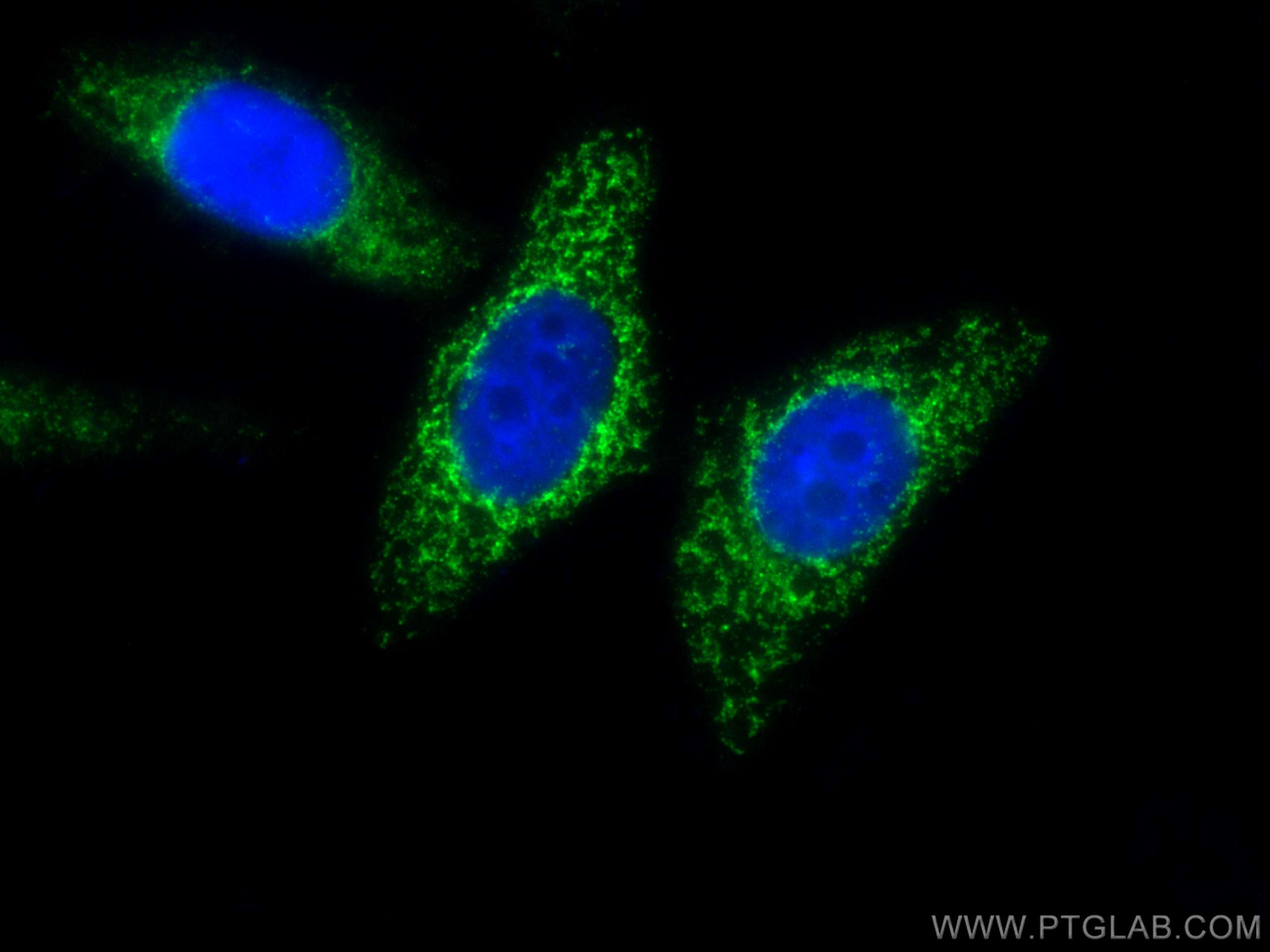- Phare
- Validé par KD/KO
Anticorps Polyclonal de lapin anti-MFF
MFF Polyclonal Antibody for IF/ICC
Hôte / Isotype
Lapin / IgG
Réactivité testée
Humain, rat, souris
Applications
IF/ICC
Conjugaison
CoraLite® Plus 488 Fluorescent Dye
N° de cat : CL488-17090
Synonymes
Galerie de données de validation
Applications testées
| Résultats positifs en IF/ICC | cellules HepG2, |
Dilution recommandée
| Application | Dilution |
|---|---|
| Immunofluorescence (IF)/ICC | IF/ICC : 1:50-1:500 |
| It is recommended that this reagent should be titrated in each testing system to obtain optimal results. | |
| Sample-dependent, check data in validation data gallery | |
Informations sur le produit
CL488-17090 cible MFF dans les applications de IF/ICC et montre une réactivité avec des échantillons Humain, rat, souris
| Réactivité | Humain, rat, souris |
| Hôte / Isotype | Lapin / IgG |
| Clonalité | Polyclonal |
| Type | Anticorps |
| Immunogène | MFF Protéine recombinante Ag9990 |
| Nom complet | mitochondrial fission factor |
| Masse moléculaire calculée | 38 kDa |
| Poids moléculaire observé | 26-29 kDa, 35-38 kDa |
| Numéro d’acquisition GenBank | BC000797 |
| Symbole du gène | MFF |
| Identification du gène (NCBI) | 56947 |
| Conjugaison | CoraLite® Plus 488 Fluorescent Dye |
| Excitation/Emission maxima wavelengths | 493 nm / 522 nm |
| Forme | Liquide |
| Méthode de purification | Purification par affinité contre l'antigène |
| Tampon de stockage | PBS with 50% glycerol, 0.05% Proclin300, 0.5% BSA |
| Conditions de stockage | Stocker à -20 °C. Éviter toute exposition à la lumière. Stable pendant un an après l'expédition. L'aliquotage n'est pas nécessaire pour le stockage à -20oC Les 20ul contiennent 0,1% de BSA. |
Informations générales
MFF (mitochondrial fission factor) is a mitochondrial outer membrane protein that is involved in mitochondrial localization of Drp1 and mitochondrial fission. Multiple isoforms of MFF exist due to the alternative splicing. This antibody recognizes the endogenous MFF protein around 26-29 kDa and 35-38 kDa.
Protocole
| Product Specific Protocols | |
|---|---|
| IF protocol for CL Plus 488 MFF antibody CL488-17090 | Download protocol |
| Standard Protocols | |
|---|---|
| Click here to view our Standard Protocols |


